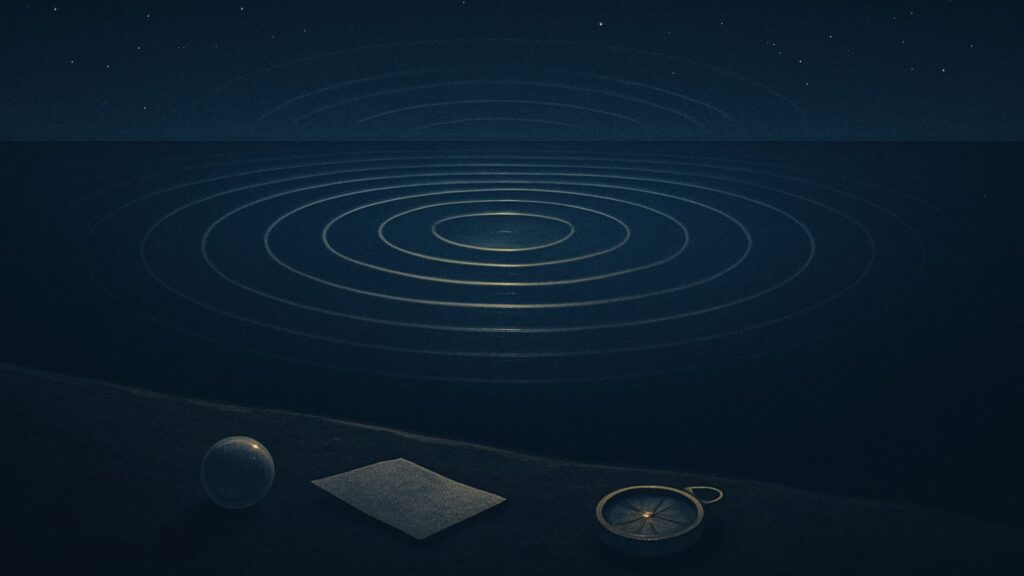Some questions never disappear – they echo through time, shaping how we see the world. Discover the hidden power of forgotten questions.
Enjoyed this post? Your support helps me keep writing, sharing ideas, and brewing coffee. Every bit counts!

Some questions never disappear – they echo through time, shaping how we see the world. Discover the hidden power of forgotten questions.
Have you ever noticed how certain questions linger, long after we’ve stopped asking them? As children, we are curious to the point of exhaustion: Why is the sky blue? Where do thoughts come from? What happens when we close our eyes?
Some of those questions receive answers, some are dismissed, and some simply vanish into silence. But they don’t truly disappear. They remain, like faint echoes in the mind, waiting for the right moment to return.
These forgotten questions are not gone; they are transformed. They work quietly beneath the surface, shaping our way of seeing the world. What we forget with our conscious mind often grows roots in the unconscious. In this way, they resemble the subtle symbols of dreams, a concept explored in the post Why Do Dreams Speak in Symbols?
Think of a question like a stone dropped into a lake. The first splash is obvious – it is our direct curiosity. But even when the stone has sunk, the ripples continue outward.
Questions we never answered ripple through time in the same way. Years later, we may find ourselves fascinated by philosophy, art, or science, without realizing that the spark came from a childhood question we abandoned.
This echo is powerful. It is the voice of curiosity reminding us that not everything needs closure. Some questions are not meant to be solved immediately; they are meant to stay alive, reshaping us with every silent return. Such echoes often mirror the invisible bridges between moments that connect our lives in unseen ways.
We forget questions for many reasons.
But forgotten doesn’t mean erased. A question like “What is death?” may be avoided at 12, ignored at 20, but deeply revisited at 40. Its echo is patient.
Interestingly, many breakthroughs in history began as forgotten or “useless” questions. Artists and scientists often describe their work as a return to something they wondered about long ago.
For example:
Forgotten questions act as seeds. They sprout slowly, sometimes across decades, until they blossom into a discovery, a work of art, or a personal truth. This idea is explored in Windows Into the Self – How Perspective Shapes Reality, which shows how they change the way we see both ourselves and the world.
Here is the paradox: some of the most important questions in life are not meant to be answered fully. They live as companions rather than problems to be solved.
These are not questions with clear conclusions, but rather questions that keep us alive to mystery. Their echoes are what give depth to our human experience.
If you want to reconnect with your forgotten questions, try this simple exercise:
You may find that the question has changed shape. What was once naïve may now feel profound. That’s the beauty of the echo: it grows with us.
In our information-driven world, there is pressure to have answers to everything. But forgotten questions remind us that not knowing is not weakness. It is space. It is freedom.
Every question we abandon teaches us humility. It shows us that human experience is not about collecting answers, but about learning to live with mystery. In fact, some of the richest conversations, friendships, and inner journeys come not from answers, but from shared wonder.
Next time you find yourself restless, try to listen – not to the noise of the world, but to the subtle echoes inside you. The ones that sound like questions you once asked and never answered. They are still here, shaping your life in quiet ways.
Perhaps the real purpose of a forgotten question is not to guide us toward a final truth, but to remind us that we are creatures of curiosity, always suspended between knowing and wondering.
And maybe – just maybe – the echo itself is the answer.
Enjoyed this post? Your support helps me keep writing, sharing ideas, and brewing coffee. Every bit counts!